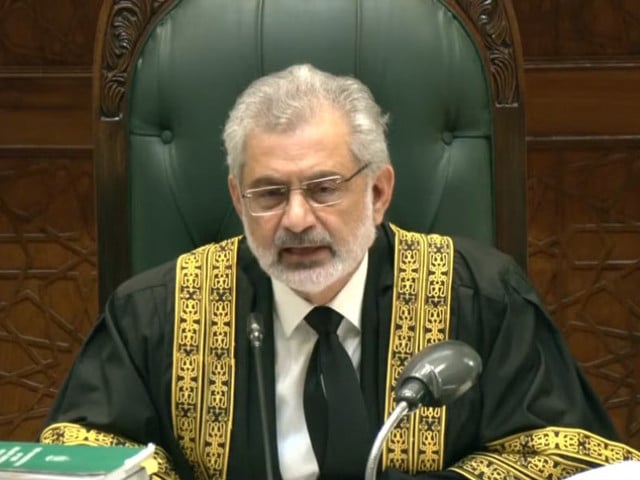While hearing a suo motu case pertaining to top investigation agency’s harassment of journalists Tuesday Chief Justice of Pakistan Qazi Faez Isa observed the court was meant to interpret law instead of enacting legislation saying the court would be unable to provide remedy in absence of any relevant law.
He was heading a three-judge bench, comprising Justice Muhammad Ali Mazhar and Justice Musarat Hilali for hearing the matter saying he only follow the Constitution and law of the land. During proceedings, Pakistan Federal Union of Journalists (PFUJ) apprised the Federal Investigation Agency (FIA) was mixing criticism with trolling.
The CJP observed the court could interpret law but it could not enact a law. “What we can do when there is no law,” he said, adding the court could only request the stakeholders to sit together. “We follow the Constitution and the law. Criticism doesn’t matter to us.” A member of the bench Justice Mazhar remarked there was no law to regulate social media. “No regulatory laws apply to social media,” he said.
Attorney General for Pakistan (AGP) informed the FIA had assured that the process of issuing notices to journalists would be delayed until general elections. The AGP reiterated his earlier statement to the court on Monday that no action would be taken against journalists. The court sought report about the investigation into the attack on journalist Absar Alam. It also allowed the PFUJ to become a party to the case. The court further said that the Press Association of the Supreme Court (PAS) could file an application if it wanted to do so.
Journalist organisations requested the court to suspend the FIA notices. However, the CJP responded saying the court had not examine any notice yet; adding that if something came in writing through civil miscellaneous application then the court could proceed. A journalist told the bench that attempts were being made to control the media before the elections. To which the CJP asked the journalist to place his plea through writing. Later, the hearing was adjourned till first week of March.





